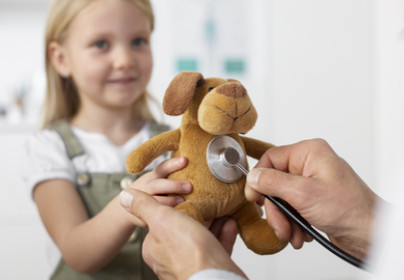Diarrhea In Young Children: What Parents Should Know ?

Diarrhea is a common condition in young children and often causes concern among parents, particularly when the child is still in the milk-feeding stage. Many may be confused between the terms "loose stools" and "diarrhea," which have different meanings. Therefore, parents should regularly observe their child’s usual stool characteristics. Any noticeable changes or abnormal symptoms should prompt a visit to the doctor for further evaluation.
The Difference Between Loose Stools and Diarrhea
1. Loose Stools
In infants who are breastfed or still consuming formula, it is normal for the stool to be soft or loose in consistency.
2. Diarrhea
Diarrhea is characterized by unusually watery stools, with the child passing stool at least three times a day or passing watery stool/mucus with blood at least once. It may also be accompanied by one or more of the following symptoms:
- Abdominal pain and reduced appetite
- Fussiness, lethargy, or lack of cheerfulness
- High fever and vomiting
- Decreased urination or dark-colored urine

Causes of Diarrhea in Children
There are multiple causes of diarrhea in infants and young children, including viral infections, bacterial infections, cow’s milk protein allergy, and side effects from certain antibiotics. Diarrhea can lead to dehydration and loss of electrolytes. In severe cases, the child may become more irritable, lethargic, and produce little urine—these signs necessitate immediate medical attention.
Continuing Milk Feeding During Diarrhea: Important Considerations
When a young child experiences diarrhea, it is not necessary to stop milk feeding immediately. Instead, the type of milk should be chosen appropriately:
- For breastfed infants: Continue breastfeeding, as breast milk contains immune-boosting substances and supports digestive system recovery. Feeding more frequently may help prevent dehydration.
- For formula-fed infants: Maintain the usual formula concentration. If the child consumes less per feeding, increase the frequency of feedings to ensure adequate nutrition. In addition, oral rehydration solutions (ORS) should be given to prevent dehydration and replenish lost electrolytes.
Changing the Formula in Certain Cases
In some cases, it may be necessary to switch to a lactose-free formula temporarily. During episodes of diarrhea, the intestines may have impaired digestion and absorption, particularly due to damage to the intestinal lining cells that produce the enzyme lactase. This can result in temporary lactose intolerance. Lactose-free formula may be used until symptoms improve, after which the child can return to regular formula.
Avoid Unnecessary Anti-Diarrheal Medication
Children should not be given anti-diarrheal medications without medical supervision. These drugs can prevent the elimination of pathogens from the intestines, leading to toxin accumulation or bacterial spread beyond the gut. Additionally, they may disrupt normal intestinal function, causing bloating or abdominal discomfort.
Information provided by
Sasipa Karintrakul
Registered Dietitian






